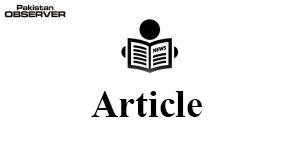Shahidullah Shahid
JUST before his resignation as Finance Minister in February 2013, Dr Abdul Hafeez Sheikh was asked if he could count an achievement as Finance Minister. He thought for a moments and shot a counter-question: “Don’t you think caring for a patient in an Intensive Care Unit (ICU) is also an achievement?” At that point, he was not able to keep up with the International Monetary Fund (IMF) because of strong domestic resistance to the Reformed General Sales Tax (RGST) and reforms in bleeding corporations. Yet he kept the Fund ‘engaged’ for almost a year without informing it to avoid a meltdown in the market. The patient is again in the proverbial ICU as Dr Sheikh has taken over the job he had left seven years ago in an almost similar situation. For the first time in 70 years, Pakistan’s economy has contracted by 0.4pc in the outgoing fiscal year (2019-20) due to adverse impact of the novel Coronavirus coupled with economic stabilization policies that hit hard the industrial sector much before the deadly pandemic. According to Asian Development Bank, only 0.2pc economic growth is expected in the next fiscal year. Fitch-an international rating agency has reported. “Pakistan’s fiscal deficit hit 9.5pc of the GDP in FY 20 and may hit 8.2pc in FY 21”. It forecasts deficit of 9.5pc pushing the public debt ratio up to 89 pc of the GDP. Moreover, lower oil prices are expected to offset the decline in remittances which will keep current account deficit stable at around 2pc of GDP through FY 21.
In fact, the national economy is generally showing an all-out dismal performance during the two years of the present government. The agricultural output growth is 0.85pc against the target of 3.8pc. The industrial sector is growing at 1.4pc against the target of 7.6pc while the services sector’s growth rate of 4.7pc is less than its 6.5pc target. The country’s per capita income in dollar terms has dropped over 8pc to about $1,515 from $1,650 last year mainly because of the currency depreciation. Also, the government failed to meet investment and savings targets. The investment-to-GDP ratio has dropped to 15.4pc against the target of 17.2pc. The savings-to-GDP ratio stood at 11.1pc in 2018-19 against the target of 13.1 Almost all macroeconomic indicators are in decline, public-sector corporations are no better than they were in 2013 and remain the single biggest drain on the public kitty. Independent economists are already estimating a loss of almost one million jobs over the stipulated three-year period of IMF package ($ 6 billion) and recent Corona outbreak. Ironically, same number of people is falling below poverty line. That is in contrast to Prime Minister’s vision of creating 10m jobs and setting the stage for an Islamic welfare state in his five-year term. The IMF conditions are always stringent.
The problem is that the IMF programme will continue until the last quarter of 2022, leaving less than three quarters for the incumbent government to generate jobs in an election year. The PTI term will end in August 2023. As Covid-19 pandemic delivers a brutal blow to an already bleak economy, the Imran Khan-led government announced what is being termed the “Corona Budget” on June 12. Despite efforts to turn around economy, the threat of economic recession looms large on the horizon. Pakistan’s current economic problems mainly include: low GDP growth (1.5pc the lowest economic growth rate in nine years), low tax to GDP ratio (12.6 pc according to World Bank), huge budget deficit (Rs 3.8 billion), mounting public debt (raised by 21pc to Rs 33.4 trillion in April 2020), decreasing FDI, high inflation (currently 11.2pc which is highest in five years), rising trade deficit ($2.8 billion in June 2020), rampant capital flight, continuous decline in foreign exchange reserves ($10.36 billion in May 2020) and falling workers’ remittances. The major causes of this crumbled economy include: inadequate security situation, looming energy crisis and lack of good governance-hike in corruption, poor economic planning and dismal performance of public sector enterprises (PSEs). In addition, tax evasion, natural calamities, pandemics and above all traditional economy, both agriculture and industrial have put Pakistan’s economy on brink of disaster.
In order to pull the country out of the ongoing economic quagmire, the federal government needs to bring down fiscal deficit by reducing its expenditure, decrease inflation from double digit to single digit, control rupee depreciation, overcome public debt, increase in exports, improve budget for socio-economic sectors like health and education, increase tax to GDP ratio by broadening tax net and tax base, increase in public subsidies, workers’ remittances and foreign exchange reserves, utilize human resources effectively, alleviate poverty and unemployment by introducing new jobs and creating more opportunities in private sector, curtail capital flight, reduce state bank’s interest rate and above all modernize traditional economy, agriculture and industry, according to changing trends in the twenty first century. Pakistan has to ensure an ambitious structural reform agenda that supplements economic policies to rekindle growth and improve living standards of the common masses. Decisive policies and reforms, together with significant external financing, are necessary to reduce vulnerabilities faster, increase confidence and put wounded economy back on a path of sustainable growth and development. To quote Quaid-i-Azam: “Let us mobilize all our resources in a systematic and organized way and tackle the grave issues that confront us with grim determination and discipline worthy of a great nation.”
—The writer is an Assistant Commissioner serving in KP.










